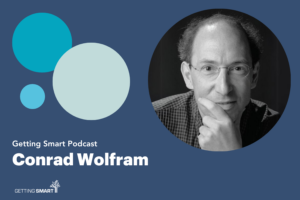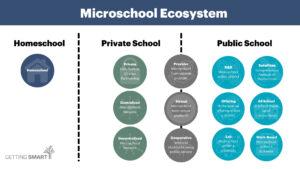Rocketing to Quality & Scale
UpdateRocketship Education is going to launch a blog, though the link to it does not seem to be working right now. It should go live later. From the press release: “To further the “Charters 2.0” national dialog regarding scale, next month Rocketship intends to host a blog, Charters 2.0. The blog will serve as a focal point to disseminate best practices and commentary regarding rapidly-growing, successful and sustainable charter school networks.”
John Danner kicked off the Rocketship advisory meeting in Palo Alto with a brief review of charter school history and a few predictions.
Danner, a former venture investor, runs a small network of high-performing elementary schools in San Jose with an audacious goal of opening thousands of gap-closing schools.
John suggests that Charter 1.0 (the last 15 years) demonstrated that good schools could close the achievement gap and help low income students achieve at similar levels to more affluent peers. But it didn’t have much impact on the traditional school system.
We’re early in Charter 2.0, a period where charter networks will achieve scale and quality. John suggested that Charter 2.0 is driven by 1) strong support from the president/secretary, 2) foundation fatigue and need to develop scalable models, and 3) the fiscal crisis which has focused the entire sector on productivity.
Danner predicts that quality at scale will be achieved by a few organizations that run thousands of schools more than thousands of networks that run a few schools.
The Rocketship model utilizes a Learning Lab to stretch the day and budget. Students spend 25% of their day in a computer lab and that saves about $500k which allows Rocketship to pay teachers more, run a long day/year, and fund part of their growth plan. John hopes to move to a 50/50% model in coming years with help from the Dreambox platform.
Keynote speaker Reed Hastings outlined his 18 year history with charter schools including the small victories of improving the California law in 1998 and the frustration with the lack of quality at scale. He used a brief history of mankind to point out how a breakthrough like penicillin (and modern medicine) changes the curve on life expectancy.
Reed is enthusiastic about the potential for technology to do the same for learning. He admits that Artificial Intelligence was over-promised 20 years ago, but that expert systems are getting better at managing smart choices at scale.
The potential for a smart engine in education is to push kids ‘just enough’, build basic skills on an accelerated path, and enable a teacher to serve as an academic and behavioral mentor and advisor.
Reed pointed out that big breakthroughs and market leading products often cost more than $100 million to develop. He asked Rocketship supporters to imagine a market that would provide inventive for companies to spend $100 million to develop a great high school chemistry sequence. He suggested that one killer app widely adopted would reduce barriers to entry and would drive additional investment.
Reed stressed the importance of continuity of governance; revolving door publically elected boards prevent high performance. He pointed to a half a dozen urban districts that for short periods of time had good direction but were derailed by board and leadership changes. “Without self-perpetuating governance you don’t have a chance to achieve greatness.” Like me, Reed hopes the two strands of charters and technology will reinforce each other to produce quality at scale.






0 Comments
Leave a Comment
Your email address will not be published. All fields are required.